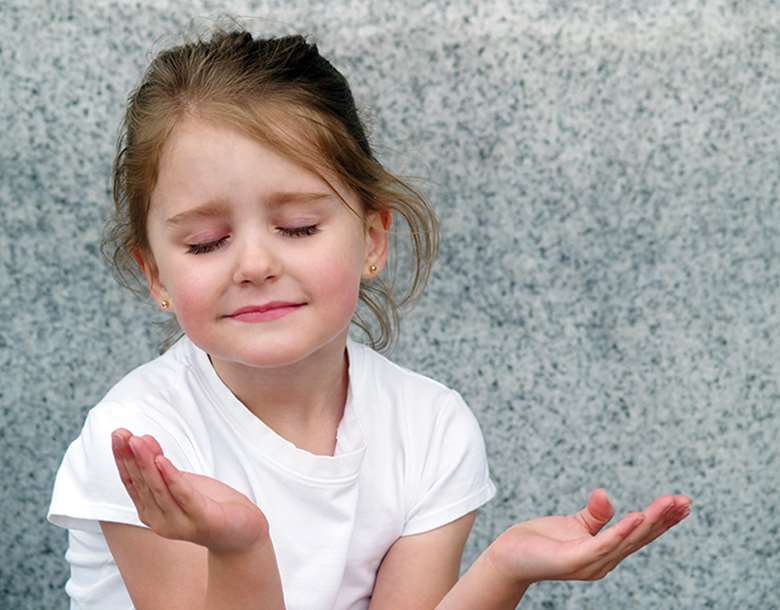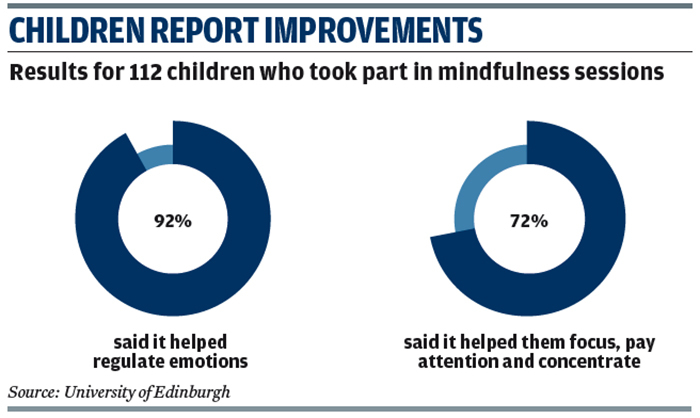How mindfulness makes children more resilient
Emily Rogers
Tuesday, November 22, 2016
Sessions for children introduce them to mindfulness and meditation techniques, learning how to become kinder and more confident.

PROJECT
Youth Mindfulness Kids Programme
PURPOSE
To boost social, emotional and psychological wellbeing among seven- to 11-year-olds and help them tap into strengths such as kindness, courage and resilience
FUNDING
A five-day training course for teachers costs £595. The cost of direct delivery varies according to requirements
BACKGROUND
Mindfulness is a secular meditative practice that involves focusing on the present moment, acknowledging and accepting thoughts, feelings and physical sensations. Glasgow-based charity Youth Mindfulness was set up by mindfulness proponent Michael Bready in 2011. Since then, more than 10,000 children across the UK and overseas have participated in its Kids Programme and more than 200 teachers have been trained to deliver it.
ACTION
The programme consists of 16 lessons over eight weeks - two hour-long sessions per week. It covers eight themes: intention, attention, attitude, gratitude, resilience, self-kindness, kindness to others, and purpose.
In the first session, the teacher builds children's interest by showing how their brains are muscles they can train and by helping them understand the relevance of mindfulness, explaining that everything happens in the present. The first three sessions are full of fun games and activities, to engage children in focusing on the present and stopping their minds from wandering. They are introduced to the practice of following their breath and the "body scan" technique, which involves tuning into different body parts and noting how each one feels.
Children spend the next sessions exploring the different facets of mindfulness, including resilience and how focusing on the present can help them perfect the art of "being with" their difficulties, rather than turning away from them, and to step back from difficult emotions. From lesson four onwards, sessions include "mindful movement" such as stretches and yoga poses that help prepare children for a short spell of meditation.
The amount of time spent meditating increases from less than one minute in early sessions to around five minutes by lesson six. In later lessons, children aged 10 and 11 can spend up to 15 minutes practising mindfulness. By lesson 11, Bready says children have "become more familiar with what it is to be a human being" and that this is the foundation for kindness towards themselves and others - qualities the approach aims to cultivate.
In the final lesson, participants develop a personal mission statement, outlining how they'll put their learning into practice. "They're just beginning to sense they have a power to make choices, over what they might say to somebody, that they may react this way or that way," explains Bready. "We ask them to reflect on what their values are. We get kids saying they want to be kind to others, courageous and confident.
"What the world really needs is more love, compassion, awareness and wisdom. These capacities are really alive within kids. This programme gives them a chance to tap into their potential."
The charity is also developing a programme for teenagers and has been trialling a course at Polmont Young Offender Institution in partnership with the Scottish Prison Service, the Scottish government and evaluators the University of Glasgow.
OUTCOME
A 2014 University of Edinburgh study explored the impact of the programme on 112 nine- and 10-year-old participants at a Glasgow school. This found 92 per cent said it helped them regulate their emotions and 72 per cent said it helped them focus, pay attention and concentrate. In addition, 72 per cent said the programme helped them become less reactive and aggressive towards others, resulting in less frequent physical and verbal confrontation. Improvements in peer and family relationships were reported by 77 per cent of children and 55 per cent said mindfulness helped them enjoy life more through increased gratitude, happiness, optimism and quality of life.

If you think your project is worthy of inclusion, email supporting data to derren.hayes@markallengroup.com




